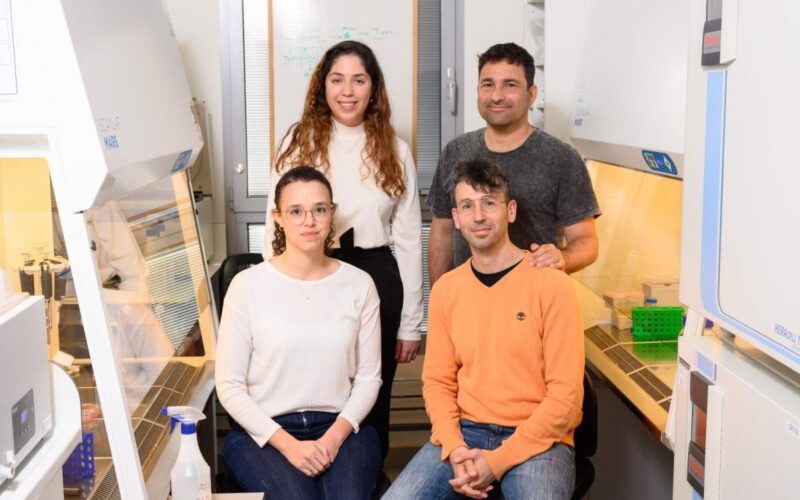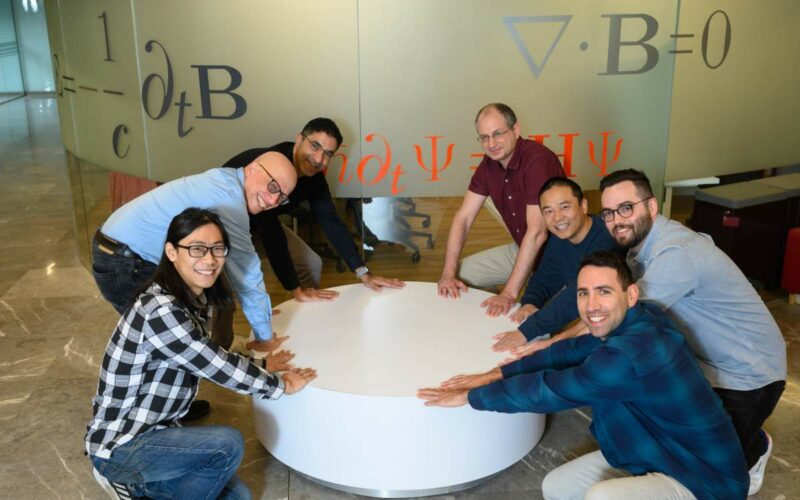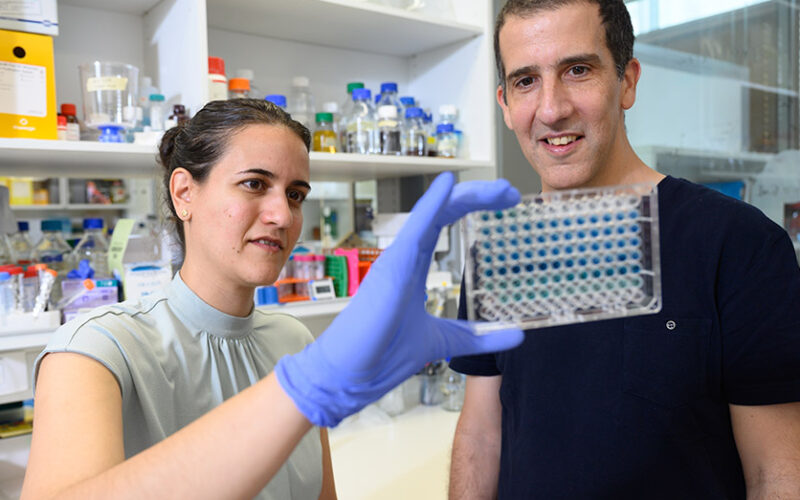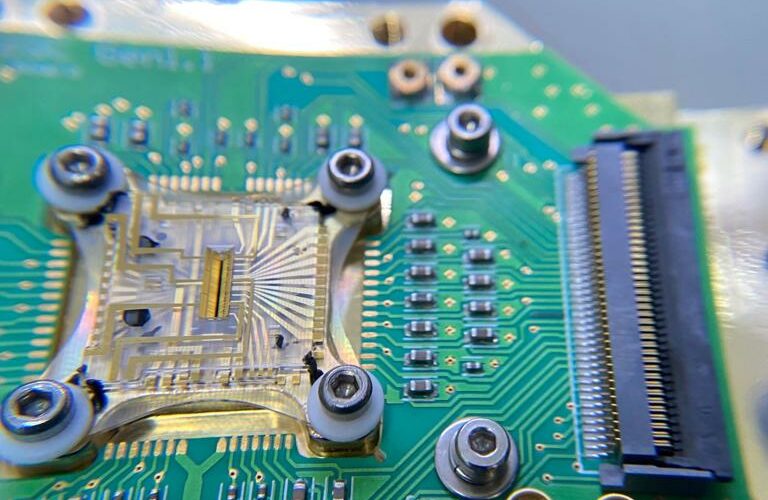Weizmann’s research into advanced technology is immense and acts as a time line for technology’s evolution.
It all began in 1954 when researchers at the Weizmann Institute of Science built Israel’s first computer – which was also one of the first in the world. Later in the 1970s the algorithm that allows our online transactions to be secure, was co-developed by a Weizmann cryptographer. More recently an Institute scientist created a DNA-based biological computer that can fit into a drop of water. Apart from these important achievements Weizmann scientists also developed the technology behind light-sensitive spectacles and windscreens; are using quantum electronics to develop our next generation computers; creating artificial vision and image-recognition systems; and finding ways to use technology to increase our security, such safety-checking complex systems in nuclear reactors and spacecraft.
Weizmann facts
Selected Achievements
Seeking to guarantee privacy online
A Weizmann mathematician and MIT colleagues invented ways to encrypt and decrypt information, creating the Rivest–Shamir–Adleman (RSA) algorithm. In addition to laying the foundation of Internet privacy, RSA is used worldwide for financial and governmental online security.
Seeking high distinction and recognition in computer science
In 2003 the A.M. Turing Award was awarded to Weizmann’s Professor Adi Shamir to recognise his work in the field of Cryptography. Known as the ‘Nobel Prize of computer science’ in 2013 it was again awarded to Professor Shafira Goldwasser to acknowledge her work also in the science of cryptography. She is third woman to win the award.
Seeking ways to use mathematics to predict material stress and failure in airplanes and dams
A mathematical formula to predict how cracks will advance in specific materials, such is the metal of airplane wings and concrete in dams has been created by Weizmann scientists. This is important in helping to predict how such structures can manage under stress.
Latest News

AI Flexes Its Muscles
Life sciences have never been more digital. To learn more about life processes, biologists are collecting massive quantities of data that computer scientists analyse by means of sophisticated computational models…

The Quantum Twisting Microscope: A New Lens on Quantum Materials
One of the striking aspects of the quantum world is that a particle, say, an electron, is also a wave, meaning that it exists in many places at the same…

Designing Proteins Just Got a Lot Easier
Studies at the Weizmann Institute of science is shows that AI is providing researchers the means to design biomolecules with a huge range of valuable functions – from medicine to…

Israel Joins the Quantum Computing Club
Building a working quantum computer is such a daunting venture that many believe it is only for tech giants and superpowers, something on a scale beyond Israel’s reach. However, Professor…
Other achievements
Fighting Cancer
Nearly half the life science research at the Weizmann Institute of Science in Israel is focussed on cancer.
Exploring the Physical World
Although over the centuries we have learned much about our physical world, from the earth below to the stars above, there are still many mysteries to uncover.
Improving Health and Medicine
Pioneers in research that has lead to better health and medicine world-wide, Weizmann has a long list of achievements.
Protecting our Planet
Providing solutions to our planet’s environmental challenges is part of Weizmann’s business.
Enriching Education
Science education is a core endeavour of the Weizmann Institute of Science.
